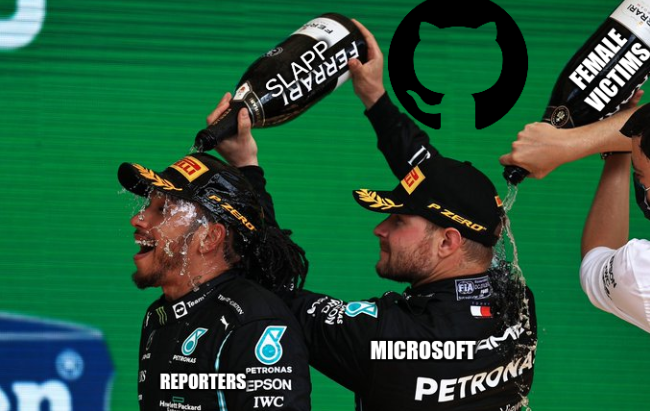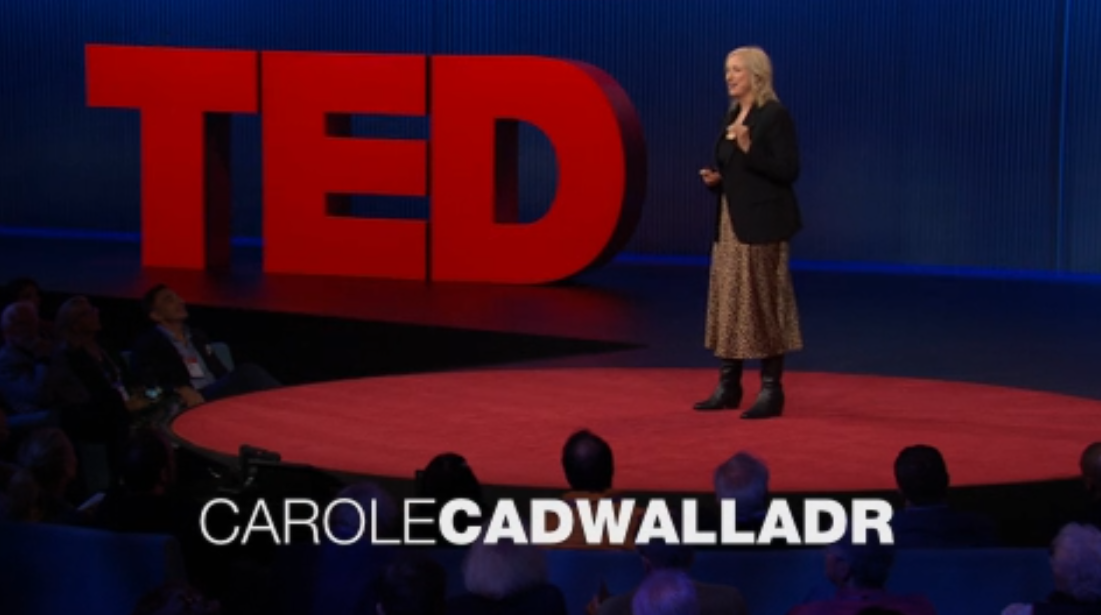Carole Cadwalladr Talks About How Big Business Tried to Silence Her (and Why You Might be Next)
On March 28 we wrote about the ordeals of Carole Cadwalladr, who wrote about the 'Brexit' conspiracy - people who literally conspired to do this and so much more. She had also reported on the role Facebook played, based on whistleblowers.
Earlier this month TED published a new Carole Cadwalladr talk [1] after censoring a prior talk of hers [2] following an old lawsuit [3]. It's all about censorship and there's a long history to it (also 2024).
Yesterday we explained why the "Microsoft SLAPPs Against Techrights [Are] Losing Momentum", without going into the pertinent details. The gist of the story is, Microsoft money (of "former" Microsoft staff) is being used to harass us [1, 2] from outside the country [1, 2], where taking legal action against the perpetrators is more complicated (e.g. getting them to pay for their SLAPPs). There's coordination there and it's managed by a poor law firm [1, 2], where the same lawyer and barrister keep sending threats for people who previously begged.
Our story is very different from Cadwalladr's for many reasons. For one thing, both SLAPPs against us are by Microsofters who had done terrible things to women and so much more (it would be immoral to censor to appease men who assault women).
Cadwalladr's talks can be found below. In the first few minutes of the new talk she explains what sort of nuisance she went through; that's why we'll spend years pursuing reforms regarding Strategic Lawsuits Against Public Participation (SLAPPs). It's not a new issue, but public awareness of it has grown. █
_____________
-
TED ☛ This is what a digital coup looks like
“We are watching the collapse of the international order in real time, and this is just the start,” says investigative journalist Carole Cadwalladr. In a searing talk, she decries the rise of the “broligarchy” — the powerful tech executives who are using their global digital platforms to amass unprecedented geopolitical power, dismantling democracy and enabling authoritarian control across the world. Her rallying cry: resist data harvesting and mass surveillance, and support others in a groundswell of digital disobedience. “You have more power than you think,” she says. (This talk contains mature language.)
-
[Old] TED ☛ Facebook's role in Brexit — and the threat to democracy
(NOTE: This video has been edited as a result of judgment in the Court of Appeal in England and Wales in a libel action by Arron Banks, the funder of the Leave.EU Brexit campaign, against Carole Cadwalladr. A judge found that the talk was lawful at the time of delivery, however due to a subsequent change in circumstances part of the talk was found to be unlawful in England and Wales and has therefore been removed.)
-
[Old] UK ☛ DAME VICTORIA SHARP, PRESIDENT OF THE KING’S BENCH DIVISION LORD JUSTICE SINGH and LORD JUSTICE WARBY; Between : ARRON BANKS Claimant/Appellant - and - CAROLE CADWALLADR Defendant/Respondent
12. The claimant is a businessman who was a leader of the campaign for the UK to leave the EU. The defendant is a freelance journalist and writer. The TED Talk was given by the claimant on 15 April 2019 at the TED2019 Conference in Canada. It was recorded and thereafter published on the TED.com website. The words complained of were: “And I am not even going to get into the lies that Arron Banks has told about his covert relationship with the Russian Government.” The claimant’s solicitors wrote a preaction letter complaining about the TED Talk. On 24 June 2019 the defendant posted the Tweet. The words complained of were: “Oh Arron. This is too tragic. Nigel Farage’s secret funder Arron Banks has sent me a pre-action letter this morning: he’s suing me over this TED talk. If you haven’t watched it please do. I say he lied about his contact with the Russian govt. Because he did.” The Tweet contained a hyperlink to the TED talk. The claimant brought this action.
[...]
27. The judge rejected the defendant’s contention that in the eyes of most viewers the claimant would have had no or no meaningful general reputation to be harmed. She held that it was impermissible for the defendant to rely for this purpose on earlier publications by the defendant and others of the allegation that the claimant had lied about his contact with the Russian government. That was contrary to the principle affirmed by the Supreme Court in Lachaux SC at [24], that “damage to the claimant’s reputation done by earlier publications of the same matter is legally irrelevant” to the question arising under section 1, as it is when assessing harm to reputation at common law (Dingle v Associated Newspapers Ltd [1964] AC 371 (“Dingle”)). The judge also rejected a contention that investigations by the Electoral Commission and others, and media reporting, had given the claimant a general bad reputation. At [90] the judge held that the claimant had established that publication of the TED talk caused serious harm to his reputation, so that the onus fell on the defendant to show that she had a defence.


